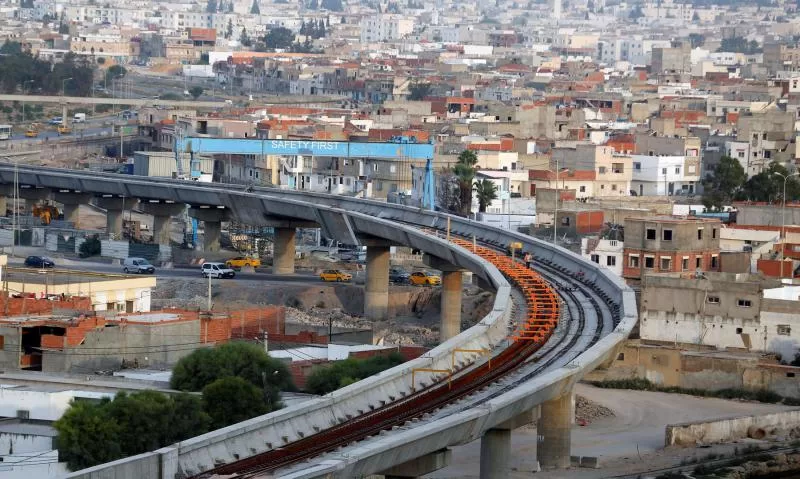The Trans-Maghreb railway, one of North Africa’s massive projects, is taking shape. The railway project is an ambitious initiative to create a unified railway network in North Africa. It is approaching a critical phase as this is reported by the railway transport news portal Railway Supply. The main objective of this project is to enhance economic and social interaction between Morocco, Algeria, and Tunisia. This requires the modernization of existing railway corridors from Casablanca to Tunis. The project has already made commendable strides in conducting feasibility and technical studies, making the development goals of the project quite satisfactory. Despite current regional challenges, the project is moving forward. The report also noted that although the main results have already been achieved and meet the stated requirements, studies on optimizing the use of remaining funds are still ongoing.
Project Factsheet
Location: North Africa
Distance: 3200 kilometers
Countries Involved: Morocco, Algeria, and Tunisia.
Significance: Promote economic and social interaction
Project duration: 30 Years
Cost of Phase: U.S. $4 Billion
The Challenges Facing the Implementation of the Trans-Maghreb Railway Project
Though implementing the Trans-Maghreb railway project is expected to have numerous positives, it is imbued by several challenges. One of these challenges is the political disagreements between Morocco and Algeria. These struggles remain a crucial obstacle, affecting all participating countries’ official validation of the project. To mitigate its prevalence, the project team has chosen a strategy of bilateral agreements to maintain progress. Implementing the Trans-Maghreb Railway is a crucial element of a long-term strategy for developing railway communication in Africa. In the future, the project could serve as an example of successful cooperation on the continent. It also comprehensively demonstrates how infrastructure modernization contributes to economic growth and development.
Also read:
The Significance of the Multi-Billion-Dollar Project Upon Completion
Upon completion, the Trans-Maghreb Railway project is expected to be a fundamental aspect of North Africa. The railway project will boost the nation’s transport sector by ensuring interconnectivity in North Africa. Furthermore, with the successful completion of construction, the Trans-Maghreb Railway promises a significant increase in GDP for all participating countries. This will ensure cordial diplomatic relations between nations by strengthening regional ties. This project could become a significant step forward for the African railway sector, which is essential in increasing economic globalization. With an estimated budget of USD 4 billion, the project is currently in the feasibility study phase. Furthermore, it is already seen as a catalyst for increasing regional connectivity and economic integration in North Africa. It also lays the groundwork for a possible network expansion into Libya and Mauritania. The project also aims to enhance the region’s efficiency and overall quality of railway services.
The Scope of Construction on One of North Africa’s Most Ambitious Projects
The scope of construction on the Trans-Maghreb railway project seeks to ensure that the railway system in North Africa is modernized. Modernizing the existing railway network covers critical sections: the reconstruction of the Fes-Oujda line in Morocco and the restoration of the border section between Morocco and Algeria (Oujda-Akid Abbas). It also includes constructing a new railway link between Algeria and Tunisia from Annaba to Jendouba. In addition, the Jendouba-Jedaida section in Tunisia will be upgraded. The improved infrastructure is expected to reduce travel time between Casablanca and Tunis from 48 to less than 25 hours. Furthermore, it will significantly increase the attractiveness of rail transport for passengers and freight shippers. The project also includes significant technological upgrades. The electrification of the network using a 2×25 kV system and the introduction of the ERTMS level 2 signalling and control systems will improve operational performance and safety.
Also read:

Leave a Reply